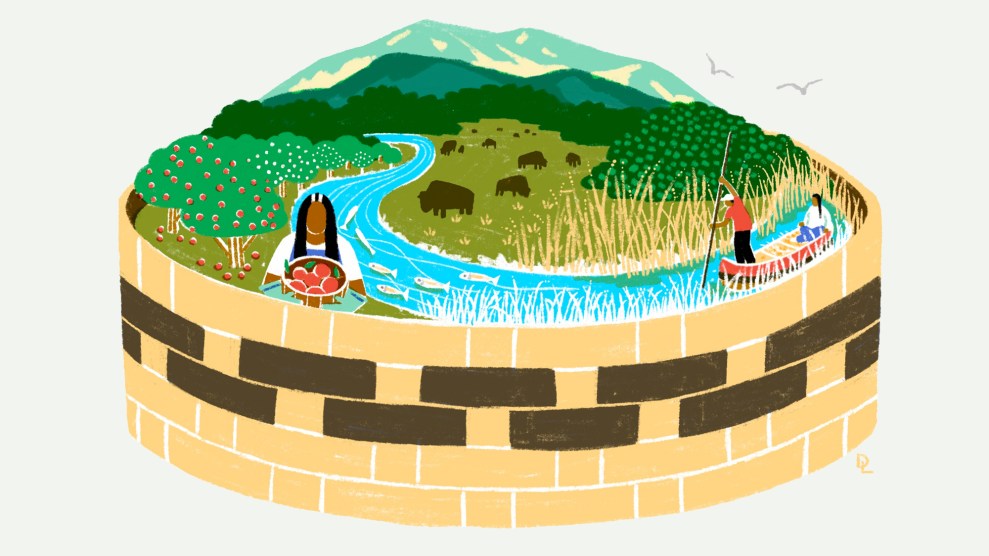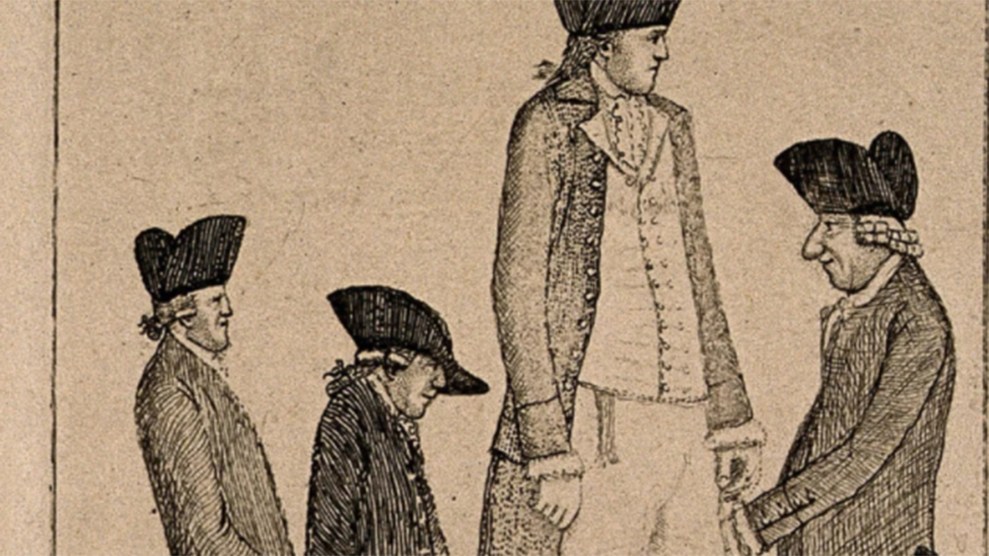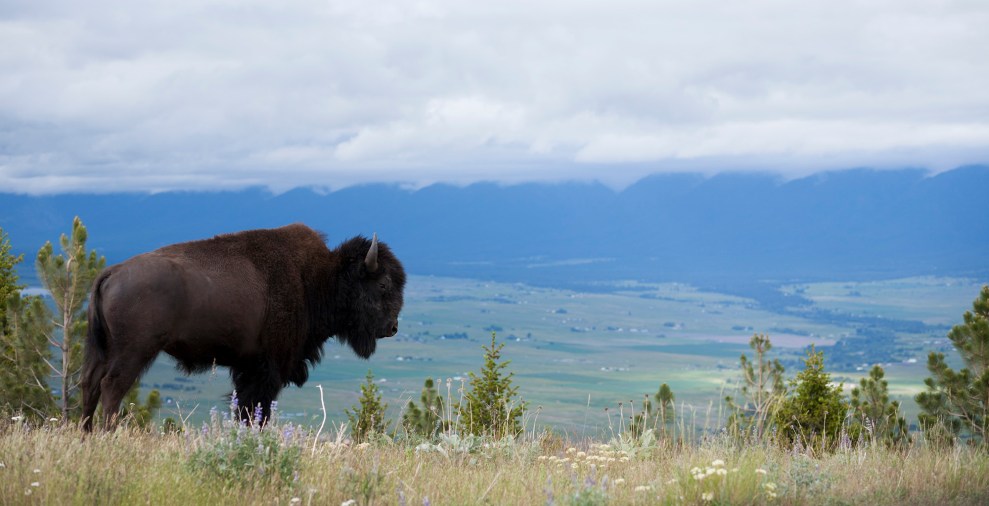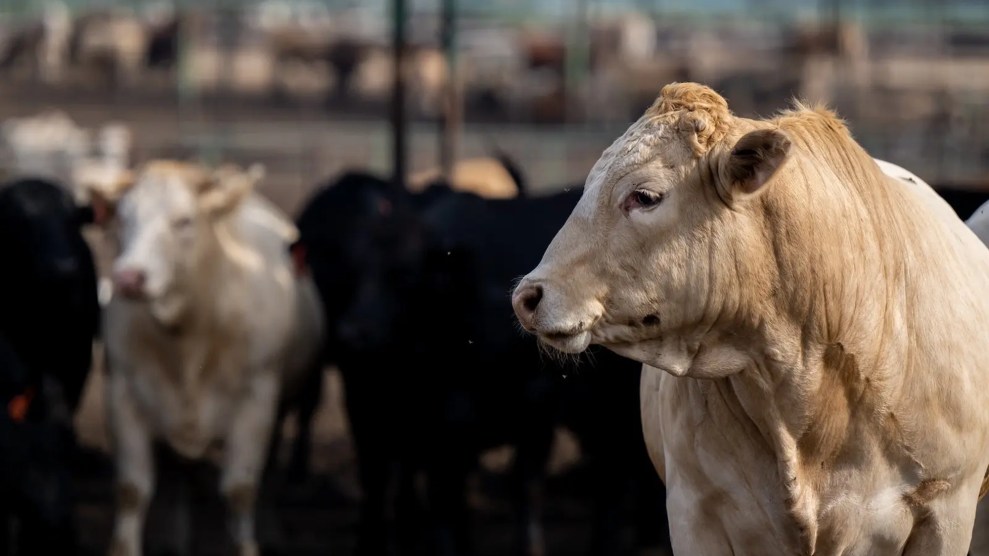The world’s first Ohlone restaurant is nestled in a lush outdoor space at the edge of the University of California, Berkeley, campus. Cafe Ohlone/mak-’amham (“our food” in the Chochenyo Ohlone language) tempts customers with soft-boiled quail eggs, black oak acorn soup, and chia-seed flour brownies. Also, Cowgirl Creamery cheese with herb bread. “Some people ask why these foods are on the menu, even though our ancestors didn’t have that,” says co-founder Vincent Medina. “It’s because Ohlone people like it.”
Part of a growing movement of Indigenous restaurants dedicated to reclaiming cultural heritage and educating the public, Cafe Ohlone opened in 2018 with the goal of bringing oṭṭoy (repair) to a place where the Ohlone were long denied sovereignty. Kickapoo chef Crystal Wahpepah runs Wahpepah’s Kitchen in Oakland, and there’s Mitsitam Cafe at the Smithsonian’s National Museum of the American Indian in Washington, DC. “Indigenous foods are the original foods of this continent,” writes Sean Sherman, who helms Owamni in Minneapolis. “It’s important we recognize that and start celebrating those foods.”
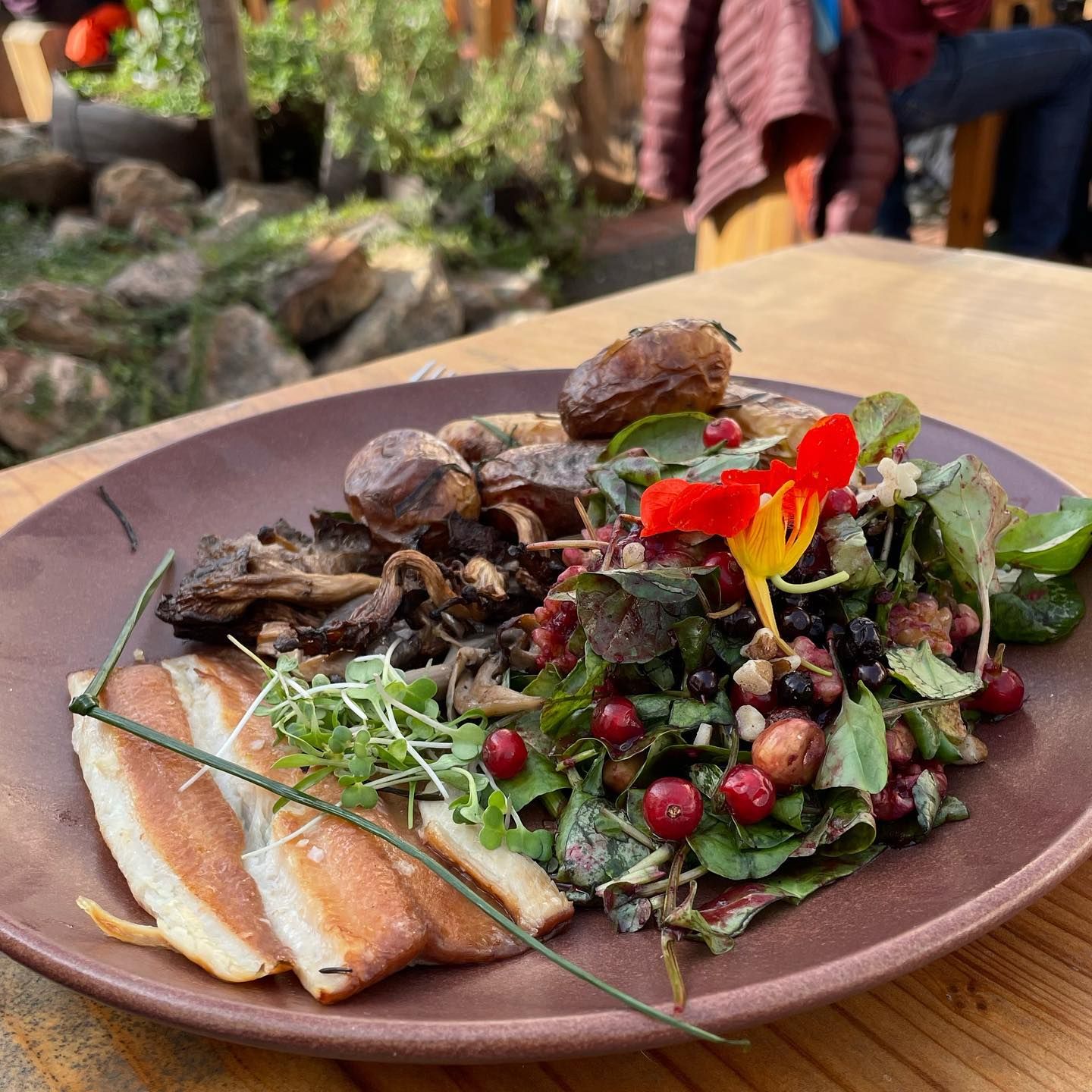
Thousands of Ohlone once lived along California’s coast and inland in roughly 50 groups, but Spanish missionaries and 19th-century state-backed massacres fractured their communities and left some survivors in exile. Medina (East Bay Ohlone), who runs the cafe with his partner, Louis Trevino (Rumsen/Carmel Valley), notes that the Ohlone presence has endured despite the hardships: “Our culture is beautiful, and we have always been here.”
At Cafe Ohlone, traditional foods meet modern tastes, highlighting continuity and adaptation. The restaurant incorporates recordings, storytelling, and education into the dining experience. Medina, an Indigenous language activist fluent in Chochenyo, is a powerful orator who often enlightens diners about Ohlone traditions. When I stopped by in May for a sunny lunch on the patio, I appreciated the recorded sounds of crickets, birds, and Chochenyo songs sung by the tribe’s youngest and eldest members. My grandma, a We Wai Kai Nation member, would adore the multigenerational Chochenyo rendition of “Angel Baby.”
The cafe serves another role, too: an attempt by the university to atone for past wrongs. For much of a century, the adjacent anthropology museum housed a vast collection of Native artifacts and bones. As I walk by, I queasily remember Ishi, one of the last Yahi Tribe members, who lived in the museum and was made to fashion arrows at the behest of anthropology professor Alfred Kroeber. In 1925, Kroeber controversially declared the Ohlone people “extinct” in Handbook of the Indians of California. This led to the Ohlone Tribe losing its federal recognition, while the building housing the museum was later christened Kroeber Hall.
After much upheaval, the university removed Kroeber’s name in 2021, but his legacy endures. He and other anthropologists of his era had led the widescale theft of 9,000 Native American remains and around 200,000 sacred artifacts. The campus still houses thousands of them, which it has been slow to return to tribal nations, though a university spokesperson tells me that some of the resources of the museum, now closed to the public, have been “redirected to the repatriation efforts.”
Medina sits on a university committee working to ensure that the remains are returned in accordance with the 1990 Native American Graves Protection and Repatriation Act. Looking to “our ancestors as property,” Medina says, “has never been appropriate or right.”
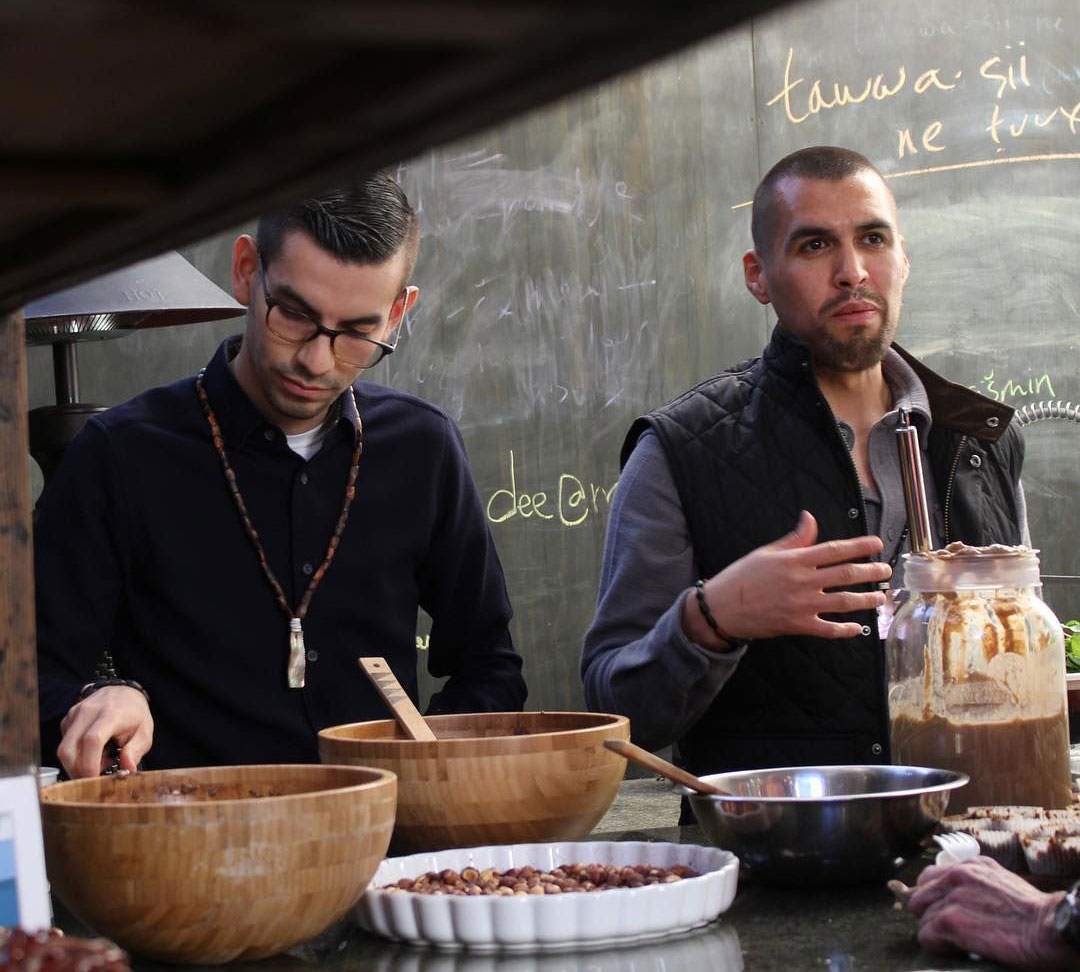
He and Trevino are also trying to increase Ohlone visibility beyond the restaurant’s walls. For the past year, they’ve been raising money to buy a piece of local land. They imagine native plant gardens, a tearoom, and a dining space in a traditional tule house—a place for the Bay Area Ohlone to gather and practice cultural traditions. Their efforts align with the Land Back movement, which advocates for restoring Indigenous lands taken by colonization.
Obstacles include a hot real estate market and the considerable cost and complexity of launching and funding a nonprofit—easier tasks for federally recognized tribes. In late 2023, the pair were close to inhabiting a site with historical and symbolic meaning in Sunol, some 37 miles southeast of Berkeley. That deal fell through, but they remain optimistic. “Our work,” they note on their website, “is an act of love.”

